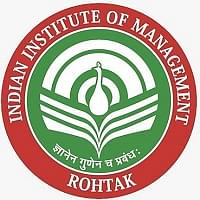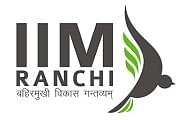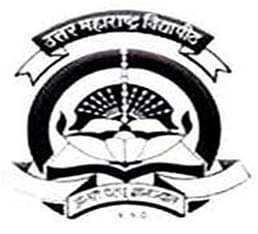Navigating Human Dynamics: Exploring B.Com
with a Focus on Organizational Behavior
Introduction
Embarking on a Bachelor of Commerce (B.Com)
degree with a specialization in Organizational Behavior offers a unique lens
through which to understand the intricacies of human interactions within
business contexts. This blog aims to guide prospective students through the
journey of pursuing a B.Com degree with a focus on Organizational Behavior,
covering admission eligibility, the syllabus structure, and the potential
career pathways that await graduates.
Admission
Eligibility
Before delving into the nuances of
Organizational Behavior within the framework of B.Com at top college,
it's essential to understand the typical admission requirements for such
programs:
- Educational Background: Most
universities require candidates to have completed their secondary
education (12th grade or equivalent) with a background in commerce,
humanities, or science. Specific prerequisites may include subjects like
economics, mathematics, or business studies, depending on the institution.
- Academic Performance:
Strong academic performance in high school or equivalent examinations is
crucial. Universities often consider Grade Point Average (GPA) or
equivalent scores as part of the admission process.
- Entrance Examinations: In
some regions or universities, entrance examinations such as SAT, ACT, or
country-specific tests may be required. These exams evaluate the
candidate's proficiency in subjects relevant to commerce and business
studies.
- Language Proficiency: For
international students, proof of proficiency in the language of
instruction (usually English) may be required through standardized tests
like TOEFL or IELTS.
- Statement of Purpose and Letters of Recommendation: Some universities may also require a statement of purpose
outlining the applicant's motivations, career goals, and interest in
studying Organizational Behavior. Letters of recommendation from teachers
or mentors may also be requested to assess the applicant's readiness for
academic study.
The
Syllabus: Mapping the Academic Landscape
Once admitted, students pursuing a B.Com Organizational Behavior syllabus can expect a curriculum that blends foundational business
knowledge with insights into human behavior within organizational settings.
While specific courses may vary by institution, typical components of the
syllabus include:
- Core Business Courses:
Foundational courses in economics, accounting, business communication,
marketing, and finance provide students with a comprehensive understanding
of the business environment and its functional areas.
- Introduction to Organizational Behavior: This foundational course introduces students to the principles of
Organizational Behavior, covering topics such as motivation, leadership,
communication, teamwork, organizational culture, and change management.
Case studies and real-world examples help illustrate theoretical concepts.
- Human Resource Management: A
deeper dive into HRM explores topics such as recruitment and selection,
performance management, compensation and benefits, employee relations, and
legal aspects of human resource management within organizations.
- Psychology and Sociology:
Courses in psychology and sociology provide insights into individual and
group behavior, social dynamics, decision-making processes, and the
psychological factors influencing behavior in organizational settings.
- Organizational Development and Change: This course focuses on strategies for organizational development,
managing change, organizational culture, and fostering innovation and
adaptation within businesses.
- Research Methods in Social Sciences: Students learn research methodologies relevant to studying human
behavior and organizational dynamics, preparing them for conducting
empirical research and analyzing data.
- Electives and Specializations:
Depending on the university's offerings, students may choose electives or
specializations that align with their career goals and interests, such as
leadership studies, negotiation and conflict resolution, organizational
psychology, or international business.
Beyond the
Classroom: Career Pathways
A B.Com degree with a specialization in
Organizational Behavior opens up diverse career opportunities across various
sectors:
- Human Resources Management:
Graduates can pursue careers as HR generalists, recruiters, talent
acquisition specialists, training and development managers, or
compensation and benefits analysts within organizations.
- Management Consulting:
Consulting firms often seek candidates with expertise in Organizational
Behavior to advise clients on improving organizational effectiveness,
managing change, and enhancing employee engagement.
- Organizational Development:
Roles in organizational development involve implementing strategies to
improve workplace culture, foster leadership development, and facilitate
organizational change initiatives.
- Training and Development:
Professionals in this field design and deliver training programs to
enhance employee skills, knowledge, and performance within organizations.
- Research and Academia:
Graduates may choose to pursue further studies (such as an MBA or master's
in Organizational Behavior) or academic careers as researchers or
educators in universities and research institutions.
Conclusion
In conclusion, pursuing a top college B.Com Organizational Behavior equips students with valuable insights into human
behavior, interpersonal dynamics, and organizational effectiveness within the
realm of business. From understanding motivational theories to implementing
strategic change initiatives, graduates are prepared to contribute effectively
to organizational success across diverse industries. As they embark on this
academic journey, students gain not only theoretical knowledge but also
practical skills that are essential for thriving in dynamic and evolving business
environments. Whether aspiring to lead HR initiatives, consult with
multinational corporations, or drive organizational change, graduates of this
program are poised to make meaningful contributions to the world of business
and beyond.












